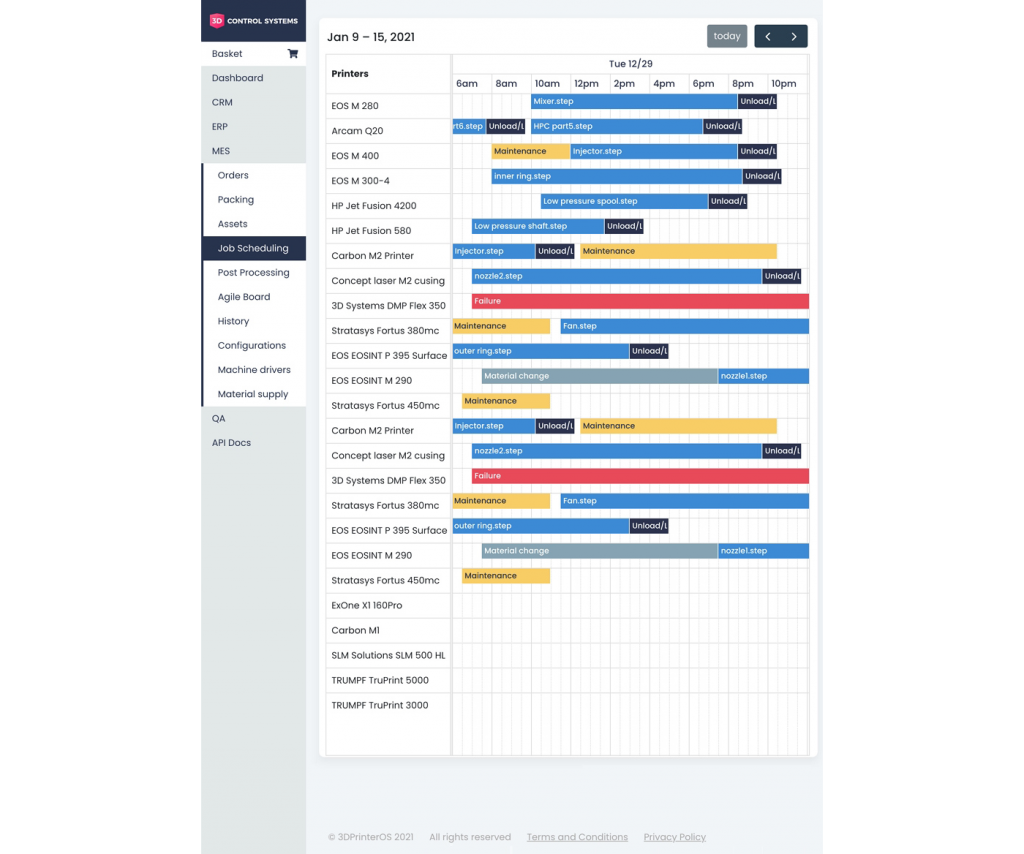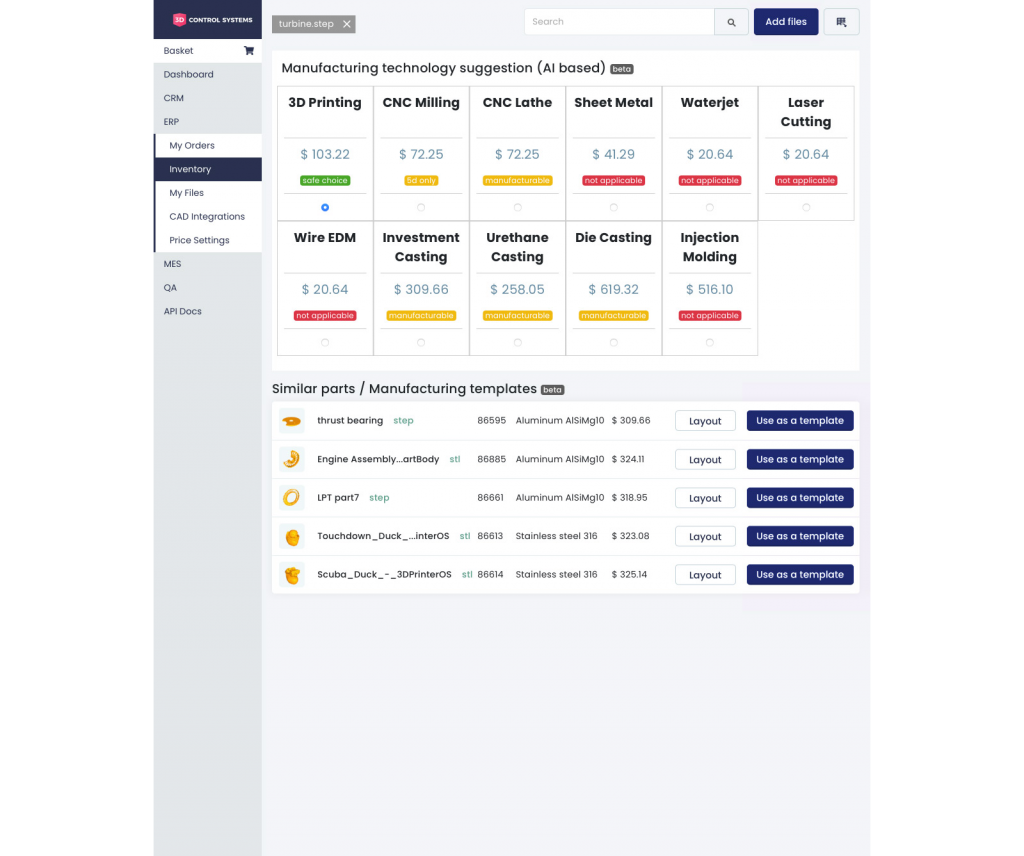Software developer 3D Control Systems, the parent company of 3DPrinterOS, has launched its new additive manufacturing workflow management software, ZAP.
The comprehensive AI-powered platform is intended to help manufacturers cut operational costs and improve production efficiencies with a full suite of production management functionality. This includes a machine-agnostic MES system, product lifecycle management (PLM) functionality, enterprise resource planning (ERP) capabilities, quality assurance, and even a customer relationship management (CRM) system.
Michelle Bockman, CEO of 3D Control Systems, states, “ZAP encompasses everything operators need to run a factory, from ERP, MES, CRM, and PLM. Our extensive partnership ecosystem has driven full automation. The solution for our customers’ biggest challenge with 3D printing is to give them one agnostic cloud-based decentralized manufacturing operating system.”

The ZAP operating system
The seemingly omnipotent operating system is compatible with over 1500 3D printers, with claims of “guaranteed integration with existing and future hardware” by the company. This serves to ensure all future 3D printer investments will be welcome into the network while alleviating system migration and deployment costs for manufacturers.
As such, the ZAP platform aims to eliminate the problem of multiple brands of 3D printers not communicating with each other, harmonizing entire manufacturing facilities with end-to-end encrypted remote management. Much of this is owing to 3D Control Systems’ extensive partnership ecosystem comprising a whole host of industry leaders in 3D printing and the wider technology sector, including Stratasys, EOS, Microsoft, Siemens and Autodesk.
The company claims that ZAP can increase throughput by 77x with an average return of investment of under two months. The core MES functionality features smart part prioritization, post-processing scheduling, production sheet generation, part passport generation and more. Also covering the business side of things, the software’s CRM system allows for customer quote generation, customer success tracking, order tracking, and predictive ROI calculation.
According to one unnamed early adopter, “When budgeting for the cost of running an advanced manufacturing facility, companies often overlook the massive hidden variable costs involving owning and operating equipment, software, people, and processes. These costs are usually 10x more than manufacturers expect. ZAP eliminates the cost variables through integration of all components to provide seamless automated interaction, resulting in reduced time and cost.”

Workflow management for the 3D printing industry
For years, the company has provided advanced file management and job preparation capabilities to the desktop 3D printing sector through its subsidiary 3DPrinterOS. Riding off the back of this success, 3D Control Systems is now targeting industrial 3D printing with its new ZAP platform, but it isn’t the only contender in the MES market space.
Additive manufacturing software provider Gravity Pull Systems also recently launched its own comprehensive workflow optimization system for industrial 3D printing. Dubbed Synoptik, the AI-based software is aimed at service bureaus and manufacturing companies serving a wide variety of industries such as aerospace, medical and automotive.
Elsewhere, software developer Authentise has previously announced a partnership with Addiguru, a developer of real-time process monitoring systems, to advance the Authentise Manufacturing Execution System (AMES). Together, the duo have since been working to integrate AI-based in-situ monitoring functionality into AMES, allowing for real time actions alongside the existing digitized workflow management capabilities.
Subscribe to the 3D Printing Industry newsletter for the latest news in additive manufacturing. You can also stay connected by following us on Twitter and liking us on Facebook.
Looking for a career in additive manufacturing? Visit 3D Printing Jobs for a selection of roles in the industry.
Featured image shows a print lab at Duke University managed by 3DPrinterOS software. Photo via 3DPrinterOS.



